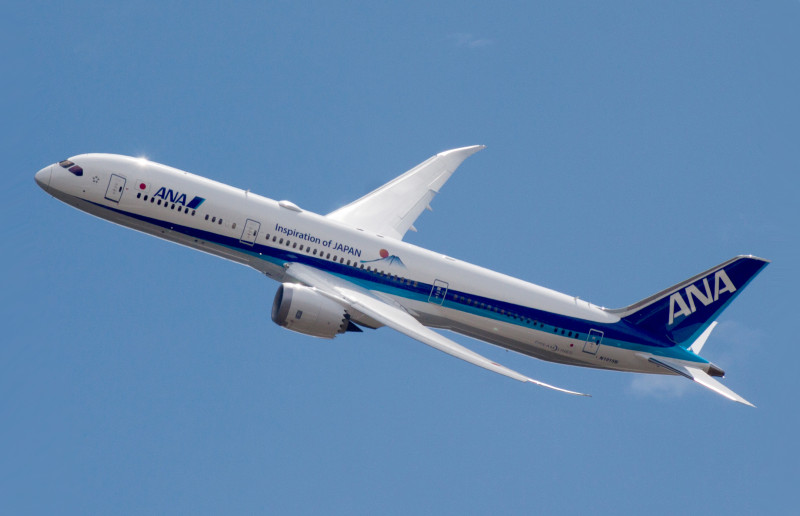Saudi Arabia, officially the Kingdom of Saudi Arabia (KSA), is a West Asian country occupying most of the Arabian Peninsula. With a land area of approximately 2,150,000 km2, it's the largest Middle Eastern country. It borders the Red Sea to the west, and the Persian Gulf to the east. Its neighbors include Jordan, Iraq, Kuwait, Bahrain, Qatar, UAE, Oman, and Yemen. Riyadh is the capital and largest city, while Mecca and Medina are Islam's holiest cities. Saudi Arabia has a population of roughly 32.2 million, making it the fourth most populous Arab nation.
1902: Ibn Saud recaptures Riyadh
In 1902, Abdulaziz Ibn Saud recaptured Riyadh, re-establishing Al Saud's presence in Nejd.
1902: Capture of Riyadh
In 1902, Abdulaziz, later known as Ibn Saud, captured Riyadh, marking the beginning of the unification of Saudi Arabia.
1912: Foundation of the Ikhwan
In 1912, the Ikhwan, a tribal army inspired by Wahhabism, was founded.
1913: Ibn Saud captures Al-Ahsa
In 1913, Ibn Saud, aided by the Ikhwan, captured Al-Ahsa from the Ottomans.
1916: Arab Revolt Led by Hussein bin Ali
In 1916, with British support, the Sharif of Mecca, Hussein bin Ali, initiated a pan-Arab Revolt against the Ottoman Empire.
1920: Launch of Al Fallah Newspaper
In 1920, Al Fallah was launched as the first newspaper in Saudi Arabia and the Persian Gulf area.
1921: Ibn Saud becomes Sultan of Nejd
In 1921, Ibn Saud took the title Sultan of Nejd after the final defeat of the Al Rashid.
1924: Conquest of Hejaz
In 1924, the Kingdom of Hejaz was conquered
1925: Establishment of regional health departments
In 1925, several regional health departments were established in Saudi Arabia, with the first one located in Makkah, marking an early step towards a national healthcare system.
January 1926: Ibn Saud Declares Himself King of Hejaz
On January 10, 1926, Ibn Saud declared himself king of Hejaz after its conquest.
1929: Defeat of the Ikhwan
In 1929, the Ikhwan were defeated at the Battle of Sabilla after a two-year struggle against Ibn Saud.
September 1932: Royal Decree Naming New State
In September 1932, Abdulaziz issued a royal decree naming the new state al-Mamlaka al-ʿArabiyya as-Suʿūdiyya, translated as "the Kingdom of Saudi Arabia".
September 1932: Unification as the Kingdom of Saudi Arabia
On September 23, 1932, Hejaz and Nejd were unified by Prince Faisal as the Kingdom of Saudi Arabia, now celebrated as Saudi National Day.
1932: Foundation of Saudi Arabia
In 1932, King Abdulaziz, also known as Ibn Saud, united Hejaz, Najd, parts of Eastern and Southern Arabia into a single state, founding Saudi Arabia.
1938: Discovery of petroleum
In 1938, petroleum was discovered in Saudi Arabia, transforming the kingdom into a major oil producer and exporter.
1941: Full-scale development of oil fields
In 1941, full-scale development of the oil fields began under Aramco (Arabian American Oil Company).
1945: Joined the UN
In 1945, Saudi Arabia joined the United Nations.
1950: Population Estimate
In 1950, the population of Saudi Arabia was estimated at 3 million.
1950: Establishment of the Ministry of Health
In 1950, the various healthcare institutions in Saudi Arabia were merged to form a ministerial body, establishing the Ministry of Health.
1951: Saudi Arabia not a signatory to the UN Refugee Convention
Saudi Arabia is not a signatory to the 1951 UN Refugee Convention.
1953: Saud of Saudi Arabia succeeded as the king
In 1953, Saud of Saudi Arabia succeeded as the king of Saudi Arabia.
1960: Co-founding of OPEC
Since co-founding OPEC in 1960, Saudi Arabia's oil pricing policy has aimed to stabilize the world oil market.
1962: Abolishment of Slavery
Slavery was officially abolished in Saudi Arabia in 1962.
1964: Deposition of Saud
In 1964, Saud was deposed in favor of his half brother Faisal of Saudi Arabia.
1966: Discovery of Ancient Burial Field
In 1966, an earthwork in Tarout exposed an ancient burial field that yielded a large statue dating to the Dilmunite period (mid 3rd millennium BC).
1970: Life in rural provinces
As late as 1970, most Saudis lived a subsistence life in the rural provinces.
1970: Launch of Five-Year "Development Plans"
In 1970, Saudi Arabia initiated five-year "Development Plans" aimed at diversifying the economy and creating employment opportunities, including launching "economic cities" such as King Abdullah Economic City.
1972: Saudi Arabia gained a 20% control in Aramco
In 1972, Saudi Arabia gained a 20% control in Aramco, thereby decreasing US control over Saudi oil.
1974: Inauguration of the King's Camel Race
In 1974, the annual King's Camel Race was inaugurated and became one of the sport's most important contests.
1975: Launch of Arab News
In 1975, Arab News, the first English-language newspaper, was launched in Saudi Arabia.
1975: Assassination of Faisal
In 1975, Faisal was assassinated and was succeeded by his half-brother King Khalid.
1976: Saudi Arabia becomes largest oil producer
By 1976, Saudi Arabia had become the largest oil producer in the world.
1979: Seizure of the Grand Mosque in Mecca
Following the seizure of the Grand Mosque in Mecca in 1979, the Saudi government strengthened the powers and financial support of the ulema.
1979: Iranian Revolution and Grand Mosque Seizure
In 1979, the Iranian Islamic Revolution and the Grand Mosque Seizure in Mecca significantly influenced Saudi foreign and domestic policy.
1979: Islamic Revolution in Iran
In 1979, the Islamic Revolution in Iran called for the overthrow of monarchies and secular governments, initiating a proxy conflict with Saudi Arabia.
1979: Reference to the 1979 Iranian revolution
In 2017, Crown Prince Mohammad bin Salman promised to return Saudi Arabia to the "moderate Islam" of the era before the 1979 Iranian revolution.
1980: Saudi Arabia buys out American interests in Aramco
In 1980, Saudi Arabia bought out the American interests in Aramco.
1980: Little change in Saudi Arabia's published oil reserves
Since 1980, Saudi Arabia's published oil reserves have shown little change.
June 1982: King Khalid's Death and Fahd's Accession
In June 1982, King Khalid died of a heart attack and was succeeded by his brother, King Fahd.
1984: AFC Asian Cup Win
In 1984, the Saudi Arabia national football team won the AFC Asian Cup.
1986: Fahd adds title Custodian of the Two Holy Mosques
In 1986, King Fahd added the title "Custodian of the Two Holy Mosques" to his name.
1987: Increase in Saudi Arabia's oil reserves
Between 1987 and 1988, Saudi Arabia oil reserves increased by about 100 billion barrels (1.6×10 m).
1988: Increase in Saudi Arabia's oil reserves
Between 1987 and 1988, Saudi Arabia oil reserves increased by about 100 billion barrels (1.6×10 m).
1988: AFC Asian Cup Win
In 1988, the Saudi Arabia national football team won the AFC Asian Cup.
1990: Saudi Arabia condemns invasion of Kuwait
In 1990, Saudi Arabia condemned the invasion of Kuwait and requested US intervention.
1990: Invitation to Foreign Troops
In 1990, the ulema played a key influence in Saudi Arabia's decision to invite foreign troops.
1990: Expulsion of Yemenis
Saudi Arabia expelled 800000 Yemenis in 1990.
1991: Saudi Arabia participates in Gulf War
In 1991, Saudi Arabian forces participated in the Gulf War to liberate Kuwait.
1991: Expulsion of Yemenis
Saudi Arabia expelled 800000 Yemenis in 1991.
1991: Gulf War and Stationing of American Troops
Saudi Arabia's role in the 1991 Gulf War, particularly the stationing of American troops on Saudi soil from 1991, prompted a hostile Islamist response internally.
March 1992: Introduction of the "Basic Law"
In March 1992, King Fahd introduced the "Basic Law", emphasizing the duties and responsibilities of a ruler in Saudi Arabia.
1992: Basic Law of Saudi Arabia Adopted
In 1992, Saudi Arabia adopted the Basic Law, stating that the king must comply with Sharia (Islamic law) and the Quran, with no political parties or national elections permitted.
December 1993: Inauguration of the Consultative Council
In December 1993, the Consultative Council, composed of a chairman and 60 members chosen by the King, was inaugurated in Saudi Arabia.
1994: Osama bin Laden stripped of citizenship
In 1994, Osama bin Laden, responsible for later terrorist attacks, was stripped of his Saudi citizenship.
1995: Fahd Suffers Stroke, Abdullah Assumes Role of Regent
In 1995, King Fahd suffered a debilitating stroke, leading Crown Prince Abdullah to assume the role of de facto regent, though his authority faced challenges.
1996: AFC Asian Cup Win
In 1996, the Saudi Arabia national football team won the AFC Asian Cup.
1998: U.S. embassy bombings in East Africa
In 1998, Osama bin Laden was responsible for the U.S. embassy bombings in East Africa.
1999: Asian Championship bronze for basketball team
In 1999, the Saudi Arabian national basketball team won bronze at the Asian Championship.
2000: Coral Reef Extent
As of 2000, The Red Sea has about 2000km of coral reef extending along the coastline.
2000: USS Cole bombing
In 2000, Osama bin Laden was responsible for the USS Cole bombing near Aden, Yemen.
2000: Establishment of the Saudi Arabian General Investment Authority
In 2000, the government of Saudi Arabia established the Saudi Arabian General Investment Authority to encourage foreign direct investment in the kingdom.
2000: Expansion of Higher Education
Since 2000, higher education has expanded rapidly in Saudi Arabia with the founding of numerous universities and colleges.
2001: Prince Bandar bin Sultan Acknowledges Corruption
In 2001, Prince Bandar bin Sultan, a senior member of the Saudi royal family, acknowledged and defended the existence of corruption in an interview.
2001: Internet Censorship
Since 2001, Saudi Arabia has engaged in internet censorship, primarily censoring "immorality" and sites critical of the regime.
2003: Privatization of Services
From 2003 to 2013, "several key services" were privatized—municipal water supply, electricity, telecommunications—and parts of education and health care, traffic control and car accident reporting were also privatized.
2003: Establishment of the National Dialogue Forum
In 2003, Saudi Arabia established the National Dialogue Forum as part of limited steps to widen political participation.
2003: Refusal to Support Invasion of Iraq
In 2003, Saudi Arabia refused to support or participate in the U.S.-led invasion of Iraq.
2003: Bombings and Armed Violence
In 2003, a series of bombings and armed violence occurred in Riyadh, Jeddah, Yanbu, and Khobar, signaling discontent within Saudi Arabia.
2004: Water and Sanitation Access Statistics
According to the 2004 census, 97% of the Saudi population had access to an improved source of drinking water, and 99% had access to improved sanitation.
2004: Bombings and Armed Violence
In 2004, a series of bombings and armed violence occurred in Riyadh, Jeddah, Yanbu, and Khobar, signaling discontent within Saudi Arabia.
April 2005: First Nationwide Municipal Elections
In February-April 2005, Saudi Arabia held its first-ever nationwide municipal elections, although women were excluded from participating.
November 2005: Membership in the World Trade Organization
In November 2005, Saudi Arabia was approved as a member of the World Trade Organization.
2005: King Abdullah Reduces Ulema Powers
After ascending to the throne in 2005, King Abdullah took steps to reduce the powers of the ulema in Saudi Arabia, such as transferring control over girls' education.
2005: King Fahd Dies, Succeeded by Abdullah
In 2005, King Fahd died, and Abdullah succeeded him, continuing a policy of minimal reform and suppressing protests while initiating economic reforms.
2005: Saudi Arabia ratifies WHO Framework Convention on Tobacco Control
In 2005, Saudi Arabia became one of the first nations to ratify the WHO Framework Convention on Tobacco Control.
2005: First Municipal Elections Held
In 2005, Saudi Arabia held its first municipal elections as part of limited steps to widen political participation.
2005: Joined the World Trade Organization
In 2005, Saudi Arabia joined the World Trade Organization.
2006: al-Huwaider's statement on the vulnerability of Saudi women
In 2006, Wajeha al-Huwaider, a Saudi feminist and journalist, highlighted the vulnerability of Saudi women due to the lack of laws protecting them.
2007: Creation of the Allegiance Council
In 2007, Saudi Arabia created the Allegiance Council to regulate the succession.
February 2009: Governmental Changes Announced
In February 2009, King Abdullah announced a series of governmental changes including judiciary and armed forces modernization, and the appointment of the country's first female deputy minister.
2009: Smoking prevalence study
In 2009, a study in Saudi Arabia revealed that the lowest median percentage of smokers was among university students (~13.5%), while the highest was among elderly people (~25%). The study also indicated that the median percentage of male smokers was significantly higher than that of females (~26.5% for males, ~9% for females).
2009: Government Personnel Changes
In 2009, the king made significant personnel changes to the Saudi government, appointing reformers to key positions and the first woman to a ministerial post.
2009: Founding of KAUST
King Abdullah University of Science and Technology (KAUST), the first mixed-gender university campus in Saudi Arabia, was founded in 2009.
December 2010: Hillary Clinton's statement on terrorist funding
In December 2010, U.S. Secretary of State Hillary Clinton stated that Saudi Arabia remains a critical financial support base for al-Qaida, the Taliban, LeT, and other terrorist groups.
2010: Saudi Arabia implements smoking restrictions
Before 2010, Saudi Arabia had no policies banning or restricting smoking. In 2010, policies were implemented to restrict smoking.
2010: Corruption Perceptions Index Score
In 2010, Transparency International gave Saudi Arabia a score of 4.7 in its Corruption Perceptions Index.
2010: Start of the Arab Spring
The start of the Arab Spring in 2010 led to increasing alarm within the Saudi monarchy over the rise of Iran's influence in the region.
January 2011: Protest in Jeddah
On 29 January 2011, hundreds of protesters gathered in Jeddah, Saudi Arabia, criticizing the city's infrastructure after flooding. The protest was quickly dispersed, and arrests were made.
February 2011: King Abdullah Announces Benefits for Citizens
On 22 February 2011, in response to Arab Spring protests, King Abdullah announced $36 billion in benefits for Saudi citizens, with $10.7 billion allocated for housing and no political reforms.
September 2011: Male-Only Municipal Elections Held
On 29 September 2011, Saudi Arabia held male-only municipal elections, while King Abdullah allowed women to vote and be elected in future elections.
December 2011: Arrest of Reporters Over Poverty Video
In December 2011, the Saudi interior ministry arrested three reporters for almost two weeks after they uploaded a video about poverty to YouTube.
2011: Study on Human Migration
A 2011 study indicated that the first modern humans migrated east across Asia from Africa about 75,000 years ago through the Bab-el-Mandeb, connecting the Horn of Africa and Arabia.
2012: Loss of Groundwater Reserves
By 2012, Saudi Arabia had lost an estimated four-fifths of its total groundwater reserves due to the consumption of nonrenewable groundwater.
2012: Visitor Statistics
In 2012, approximately 14.3 million people visited Saudi Arabia, making it the world's 19th-most-visited country, according to the World Bank.
2012: End of the Arab Spring
The end of the Arab Spring in 2012 led to increasing alarm within the Saudi monarchy over the rise of Iran's influence in the region.
November 2013: Expulsion of illegal Ethiopian residents
In November 2013, Saudi Arabia expelled thousands of illegal Ethiopian residents from the kingdom.
2013: Report on foreign-born domestic workers
According to The Guardian, as of 2013, there were more than half a million foreign-born domestic workers in Saudi Arabia, predominantly from Africa, the Indian subcontinent, and Southeast Asia. These workers often pay large sums to recruitment agencies in their home countries to secure employment.
2013: CIA Factbook estimate of foreign nationals living in Saudi Arabia
As of 2013, the CIA Factbook estimated that foreign nationals living in Saudi Arabia made up about 21% of the population.
2013: Privatization of Services
From 2003 to 2013, "several key services" were privatized—municipal water supply, electricity, telecommunications—and parts of education and health care, traffic control and car accident reporting were also privatized.
2013: Detention and deportation of undocumented migrant workers
Since 2013, over 500000 undocumented migrant workers—mostly from Somalia, Ethiopia, and Yemen—have been detained and deported. An investigation exposed alleged abuse of African migrants detained for containing COVID-19, including beatings, torture, and deaths due to heatstroke or suicide.
June 2014: Law approved to protect ancient relics and historic sites
In June 2014, the Council of Ministers approved a law that gives the Saudi Commission for Tourism and National Heritage the means to protect Saudi Arabia's ancient relics and historic sites.
2014: Implementation of anti-domestic violence law
In 2014, Saudi Arabia implemented the anti-domestic violence law.
2014: Grand Mufti prohibits support for terrorist organizations
In 2014, Sheikh Abdulaziz bin Abdullah Al-Sheikh, the Grand Mufti of Saudi Arabia, issued a fatwa explicitly prohibiting joining or supporting terrorist organizations such as ISIS and al-Qaeda.
2014: Foreign population estimate
In 2014, the Central Department of Statistics & Information estimated the foreign population in Saudi Arabia at 33% (10.1 million).
March 2015: Intervention in Yemen Civil War
In March 2015, Saudi Arabia mobilized 150,000 troops and 100 fighter jets to support its intervention in the civil war in Yemen.
December 2015: Formation of Islamic Military Counter Terrorism Coalition
In December 2015, Saudi Arabia announced the formation of the Islamic Military Counter Terrorism Coalition, an alliance of Muslim-majority countries aimed at combating terrorism and extremism.
2015: Accusations of Supporting Extremist Ideology
In 2015, Syrian President Bashar al-Assad noted that the extreme ideology of ISIS and other Salafist extremist groups originates from Wahhabism, supported by the Saudi royal family.
2015: Increased Sanitation Access
In 2015, it was estimated that access to sanitation in Saudi Arabia increased to 100%, primarily through on-site solutions, with about 40% of the population connected to sewers; however, 886,000 people still lacked access to "improved" water.
2015: UNESCO World Heritage Site requests
In 2015, ten sites in Saudi Arabia submitted requests for recognition to UNESCO.
2015: Women Allowed to Vote and be Elected
In 2015, women in Saudi Arabia were allowed to vote and be elected in municipal elections, and also to be nominated to the Shura Council, by King Abdullah.
September 2016: Justice Against Sponsors of Terrorism Act
In September 2016, the U.S. Congress passed the Justice Against Sponsors of Terrorism Act, allowing relatives of 9/11 victims to sue Saudi Arabia.
2016: Capture of Aden and Parts of Yemen
By early 2016, Saudi ground forces and their coalition allies captured Aden and parts of southwest Yemen.
2016: End to domestic wheat production
In 2016, Saudi Arabia ended domestic wheat production in order to preserve water reserves.
2016: Formation of the General Entertainment Authority (GEA)
In 2016, the General Entertainment Authority (GEA) was formed to oversee the expansion of the Saudi entertainment sector.
2016: Launch of the "Ada'a" project
In 2016, the Health Ministry in Saudi Arabia launched the "Ada'a" project. This new system created a nationwide performance indicator, to promote friendly competition between districts and improve medical services and hospitals, leading to better waiting times and other major measurements across the kingdom.
2016: Mass executions
Mass executions in Saudi Arabia, such as those carried out in 2016, have been condemned by international rights groups.
2016: Total value of natural resources
Saudi Arabia is considered an "energy superpower," having the third highest total estimated value of natural resources, valued at US$34.4 trillion in 2016.
2016: Reforms in Saudi Arabia
Since 2016, the kingdom of Saudi Arabia began backing away from Islamist ideologies by curbing the powers of religious police and stopping funding mosques in foreign countries.
2016: Religious police power curbed
Since 2016, the power of the "religious police" (Haia or Mutaween) in Saudi Arabia was curbed, barring them from pursuing, questioning, requesting identification, or arresting suspects.
2016: Allocation of funds for preserving historical and cultural heritage
Within the framework of the 2016 National Transformation Programme, Saudi Arabia allocated 900 million euros to preserve its historical and cultural heritage.
March 2017: Participation in the International Alliance for the Protection of Heritage in Conflict Areas
In March 2017, Saudi Arabia participated in the International Alliance for the Protection of Heritage in Conflict Areas, with a contribution of 18.5 million euros.
November 2017: Anti-Corruption Campaign
In November 2017, Saudi Arabia arrested as many as 500 people, including princes, ministers, and businesspeople, in an anti-corruption campaign.
November 2017: Discovery of Ancient Dog Engravings
In November 2017, rock engravings were discovered in Shuwaymis, Saudi Arabia, depicting dogs resembling the Canaan Dog wearing leashes, dating back over 8000 years.
2017: Address issues of mobility
Between 2017 and 2020, the country addressed issues of mobility.
2017: Crown Prince promises return to "moderate Islam"
In 2017, Crown Prince Mohammad bin Salman promised to return Saudi Arabia to the "moderate Islam" of the era before the 1979 Iranian revolution.
2017: Arms Purchase Agreement with the United States
In 2017, Saudi Arabia and the United States signed letters of intent for Saudi Arabia to purchase arms from the United States totaling $350 billion over 10 years.
2017: Implementation of tax on unhealthy products and opening of women-only gyms
In 2017, Saudi Arabia implemented a tax increase on unhealthy food, drinks, and cigarettes as advised by the ministry's new Diet and Physical Activity Strategy. Also in 2017, women-only gyms were allowed to open, offering sports like bodybuilding, running and swimming.
2017: Nuclear Power Program
In 2017, as part of its nuclear power programme, Saudi Arabia planned to extract uranium domestically, taking a step towards self-sufficiency in producing nuclear fuel and explored foreign partnerships to construct civil nuclear reactors.
2017: Baseline tobacco use rate
In 2017, the rate of tobacco use in Saudi Arabia was 12.7%.
2017: U.S. State Department Report on Religious Freedom
In its 2017 religious freedom report, the U.S. State Department named Saudi Arabia a Country of Particular Concern due to systematic, ongoing, and egregious violations of religious freedom.
2017: Social reforms regarding women's rights initiated
Since Mohammed bin Salman was appointed Crown Prince in 2017, Saudi Arabia has witnessed a series of social reforms regarding women's rights.
March 2018: Crown Prince meets Archbishop of Canterbury
In March 2018, the Crown Prince of Saudi Arabia met the Archbishop of Canterbury during a visit to the UK, pledging to promote interfaith dialogue.
June 2018: Law Allowing Women to Drive
In June 2018, the Saudi government issued a law officially allowing women to drive.
2018: Languages Spoken by Expatriate Communities
According to 2018 data, the most numerous languages spoken by expatriate communities in Saudi Arabia are Bengali (~1,500,000 speakers), Tagalog (~900,000), Punjabi (~800,000), Urdu (~740,000), Egyptian Arabic (~600,000), Rohingya, and North Levantine Arabic (both ~500,000), and Malayalam.
2018: Religious and non-religious tourism have significant potential for expansion
According to a report conducted by BMI Research in 2018 both religious and non-religious tourism have significant potential for expansion.
2018: Saudi Arabia's Debut at Cannes Film Festival and Venice Biennale
In 2018, Saudi Arabia made its debut appearances at both the Cannes Film Festival and the Venice Biennale, marking developments in the arts.
2018: Ranking in Research Output
In 2018, Saudi Arabia ranked 28th worldwide in terms of high-quality research output, according to the scientific journal Nature.
2018: Sportswashing strategy revealed in document
In 2018, Saudi's US-based lobbying campaign foreign registration documentations got published online. The documents showed Saudi Arabia as allegedly implementing a sportswashing strategy, including meetings and official calls with authorities of associations like Major League Soccer, World Wrestling Entertainment, and the National Basketball Association.
2018: First Public Cinema Opens After 35-Year Ban
In 2018, the first public cinema opened in Saudi Arabia after a ban of 35 years, with plans to have more than 2000 screens running by 2030.
2018: Saudi Arabia expresses willingness to acquire nuclear weapons
Since 2018, Saudi Arabia has repeatedly expressed willingness to acquire or develop nuclear weapons in the event that its chief regional rival, Iran, develops one.
2018: Women permitted in sports stadiums
Until 2018 women were not permitted in sport stadiums. Segregated seating, allowing women to enter, has been developed in three stadiums across major cities.
May 2019: Saudi Arabia receives global award for combating smoking
In May 2019, Saudi Minister of Health Tawfiq bin Fawzan AlRabiah received a global award on behalf of the Kingdom for combating smoking. The award was presented at the 72nd session of the World Health Assembly in Geneva.
July 2019: Saudi Arabia contributes to UNESCO for heritage preservation
In July 2019, Saudi Arabia contributed US$25 million to UNESCO for the preservation of heritage.
August 2019: Criticism of Saudi Arabia's Sportswashing Strategy
In August 2019, Saudi Arabia's strategy of introducing international sporting events received criticism for appearing as a method of sportswashing, following the publication of the kingdom's US-based 2018 lobbying campaign documents.
2019: Spending on defence and security
As of 2019, Saudi Arabia's spending on defence and security was about US$78.4 billion.
2019: Plans to open visa applications for visitors
In 2019, Saudi Arabia announced its plans to open visa applications for visitors from about 50 countries, enabling them to obtain tourist visas.
2019: Program for small farmers to produce wheat
In 2019, Saudi Arabia encouraged small farmers to produce wheat through a domestic production program established under the Saudi Ministry of Environment, Water, and Agriculture (MEWA).
2019: Introduction of Tourism Travel Visa
In 2019, Saudi Arabia introduced a general tourism travel visa to allow non-Muslims to visit the country.
2019: Amendment of guardianship law and granting women rights
In 2019, Saudi Arabia partially amended the guardianship law to exclude women over 21 from the requirement of a male guardian and granted women rights in relation to the guardianship of minor children. Women were allowed to travel abroad, register for divorce or marriage, and apply for official documents without male guardian permission.
2019: Global Innovation Index Ranking
In 2019, Saudi Arabia was ranked 68th in the Global Innovation Index.
2019: Introduction of Premium Residency visa
In 2019, a specialized Premium Residency visa became available in Saudi Arabia, allowing foreigners to apply for residency.
2019: Introduction of calorie labels on food and drink products
In 2019, calorie labels were added to some food and drink products in Saudi Arabia, as part of the Diet and Physical Activity Strategy. Ingredients were also listed, to reduce obesity and inform citizens with health issues to manage their diet.
2019: Mass executions
Mass executions in Saudi Arabia, such as those carried out in 2019, have been condemned by international rights groups.
April 2020: Elimination of Flogging
In April 2020, the Saudi Supreme Court issued a directive to eliminate the punishment of flogging from the court system, replaced by imprisonment or fines.
May 2020: Finance Minister admits to severe economic crisis
In May 2020, the Finance Minister of Saudi Arabia acknowledged a severe economic crisis due to the COVID-19 pandemic and declining global oil markets, stating that "painful" measures would be necessary.
November 2020: Launch of the first nationwide Saudi women's premier league
In November 2020, the Saudi Arabian Football Federation announced the launch of the first nationwide Saudi women's premier league.
2020: 98% of Saudi Arabia's Population are Internet Users
According to the World Bank, as of 2020, 98% of the population of Saudi Arabia are internet users, ranking it 8th among countries with the highest percentage of internet users.
2020: Address issues of sexual harassment, pensions, and employment-discrimination protections
Between 2017 and 2020, the country addressed issues of sexual harassment, pensions, and employment-discrimination protections.
2020: Electronic visa eligibility
In 2020, Saudi Arabia announced that holders of a US, UK, or Schengen visa are eligible for a Saudi electronic visa upon arrival.
2020: Literacy Rates
In 2020, the literacy rate in Saudi Arabia was 99% among males and 96% among females, with youth literacy rising to approximately 99.5% for both sexes.
May 2021: Discovery of Acheulean Site in Hail Region
In May 2021, archaeologists announced the discovery of a 350,000-year-old Acheulean site named An Nasim in the Hail region, potentially the oldest human habitation site in northern Saudi Arabia.
2021: Judicial Reforms Announced
In 2021, Saudi Arabia announced judicial reforms which will lead to an entirely codified law that eliminates discrepancies.
2021: Saudi Arabia cleans textbooks from antisemitic and sexist paragraphs
In 2021, Saudi Arabia took measures to remove antisemitic and sexist content from textbooks. The paragraphs addressing the punishment of homosexuality, admiration for extremist martyrdom, and expressions demonizing Jews, Christians, and Shiites were either deleted or toned down. The U.S. State Department welcomed these changes and the Saudi Ministry of Foreign Affairs supported teacher training programs.
2021: Saudi Arabia's E-Commerce Revenue
In 2021, Saudi Arabia's e-commerce market generated a revenue of US$8 billion, making it the 27th largest market for e-commerce.
2022: Reporters Without Borders rates Saudi press as "very serious"
As of 2022, Reporters Without Borders rates the kingdom's press a "very serious" situation.
2022: Saudi Arabia's Date Production
As of 2022, Saudi Arabia is the world's second-largest producer of dates, producing 1.6 million tonnes, mainly for global humanitarian aid.
2022: Saudi Arabia population in 2022
As of 2022, the reported population of Saudi Arabia is 32,175,224, making it the fourth most populous country in the Arab world.
2022: Crown Prince Mohammed Bin Salman Appointed Prime Minister
In 2022, Crown Prince Mohammed Bin Salman became the Prime Minister of Saudi Arabia.
2022: Democracy Index Ranking
In 2022, The Economist ranked the Saudi government 150th out of 167 in its Democracy Index.
2022: Life expectancy, infant mortality, and obesity rates in Saudi Arabia
In 2022, according to the World Bank, Saudi Arabia had a life expectancy of 78 years, an infant mortality rate of 6 per 1000, and an adult population with 71.8% overweight and 40.6% obese.
2022: University Rankings
In 2022, the Academic Ranking of World Universities (Shanghai Ranking) included five Saudi institutions among its top 500 globally. The QS World University Rankings listed 14 Saudi universities among the world's top universities and 23 among the top 100 in the Arab world. U.S. News & World Report Best Global University Ranking ranked King Abdulaziz University among the top 50 and King Abdullah University of Science and Technology among the top 100 globally.
2022: Capital Punishment Modifications
In 2022, the Saudi Crown Prince stated that capital punishments will be removed "except for one category mentioned in the Quran", namely homicide, under which certain conditions must be applied.
2022: Women granted right to divorce under new Personal Status Law
In 2022, women in Saudi Arabia were granted the right to divorce without the approval of a legal guardian under the new Personal Status Law.
2022: Mass executions
Mass executions in Saudi Arabia, such as those carried out in 2022, have been condemned by international rights groups.
June 2023: Reversal of Ban on Women in Certain Professions
As of June 2023, Saudi Arabia has reportedly reversed its ban on women "becoming lawyers, engineers, or geologists" and established "aggressive affirmative action programmes", doubling the female labor force participation rate.
2023: Saudi Arabia fourth in the world in per capita military spending
A 2023 estimate by SIPRI ranked Saudi Arabia fourth in the world in per capita military spending.
2023: Armed Forces personnel count
As of 2023, Saudi Arabia has 127,000 active personnel in the Armed Forces, 130,000 in the National Guard, and 24,500 in the paramilitary security forces.
2023: Urbanization
As of 2023, approximately 85% of Saudis live in urban metropolitan areas—specifically Riyadh, Jeddah, and Dammam.
2023: Freedom House Rating
In 2023, Freedom House gave Saudi Arabia its lowest "Not Free" rating, with a score of 8 out of 100, and according to V-Dem Democracy Indices, Saudi Arabia is the least democratic country in the Middle East.
July 2024: RELC forms joint ventures with Chinese companies
In July 2024, Saudi Arabia's Renewable Energy Localisation Company (RELC) established three joint ventures with Chinese firms, including Envision Energy, Jinko Solar, and Lumetech, to advance clean energy infrastructure and localize renewable energy components in alignment with Saudi Arabia's 2030 targets.
November 5, 2024: Discovery of ancient city in Khaybar oasis
On November 5, 2024, archeologists announced the discovery of an ancient city named al-Natah, dating back 4,000 years to the Bronze Age around 2,400 BC, in the Saudi oasis of Khaybar. The city had about 500 houses, and a nearby cluster of graves was found containing metal weapons.
December 2024: Saudi Arabia Confirmed as Host of the 2034 FIFA World Cup
In December 2024, Saudi Arabia was confirmed as the host of the 2034 FIFA World Cup.
2024: Military Expenditure Estimate
According to the 2024 Stockholm International Peace Research Institute (SIPRI) estimate, Saudi Arabia spends approximately US$80.3 billion, or around 7% of its GDP, on its military, placing it seventh in the world.
2024: Largest recipient of U.S. arms
As of 2024, Saudi Arabia accounts for 12 percent of all U.S. arms exports.
2024: Troops participating in the conflict in Yemen
As of 2024, Saudi Arabia had 2,500 troops actively participating in the conflict in Yemen.
2024: Mangrove Planting Initiative Update
As of 2024, as part of the Saudi Green Initiative, the National Centre for Vegetation Cover Development and Combating Desertification announced it had planted 13 million mangrove seedlings, aiming to plant 100 million in total.
2024: Global Innovation Index Ranking
In 2024, Saudi Arabia was ranked 44th in the Global Innovation Index, up from 68th in 2019.
2024: Saudi Arabia Emphasizes Climate Goals Progress
In 2024, at the High-Level Political Forum for Sustainable Development in New York, Saudi Arabia's Minister of Economy and Planning, Faisal Al Ibrahim, highlighted the country's progress in global climate goals, citing over 80 initiatives and investments exceeding $180 billion for the country's green economy.
May 18, 2025: Opening of world's first AI-powered doctor clinic in Al Ahsa
On May 18, 2025, Saudi Arabia announced the opening of the world's first AI-powered doctor clinic in Al Ahsa. Developed by Synyi AI and Almoosa Health Group, the clinic features "Dr. Hua," an AI physician capable of independently diagnosing and prescribing treatments, which are reviewed by licensed human doctors.
2025: Doubling of wheat production forecast
In 2025, Saudi Arabia wheat production is forecast to more than double the five-year average.
2025: Dar al-Reaya Investigation
In 2025, The Guardian newspaper found that the Dar al-Reaya, officially "care homes", continued to be effectively "jails" for women.
2029: Wheat production program aims for 1.5 million metric tons
Through 2029, Saudi Arabia's wheat production program aims to allow up to 5,000 small farmers to produce a maximum of 1.5 million metric tons (MT) per year.
2030: Saudi Arabia aims to localize 75% of renewable energy components
By 2030, Saudi Arabia aims to localize up to 75% of the components used in the country's renewable energy projects.
2030: Planned Cinema Screens
By 2030, there are plans to have more than 2000 cinema screens running.
2030: Vision 2030 objectives focused on sustainability
In 2024, Faisal Al Ibrahim emphasized the alignment of Saudi Arabia's climate efforts with Vision 2030 objectives, focusing on local sustainability, sector integration, and societal advancement.
2030: Target tobacco use rate
Saudi Arabia plans to reduce tobacco use from 12.7% in 2017, to 5% in 2030.
2030: Vision 2030 programmes affected by pandemic
The COVID-19 pandemic and human rights concerns posed unforeseen challenges to Saudi Arabia's development plans, potentially affecting programs under 'Vision 2030'.
2030: Tourism as Part of Vision 2030
Tourism is an important component of the Saudi Vision 2030.
2030: Part of Saudi Vision 2030
Within the framework of the 2016 National Transformation Programme, also known as Saudi Vision 2030, the kingdom allocated 900 million euros to preserve its historical and cultural heritage.
2034: FIFA World Cup in Saudi Arabia
In 2034, the FIFA World Cup is scheduled to be held in Saudi Arabia, with developments of stadiums and airports underway to accommodate the event.
Mentioned in this timeline

Basketball is a team sport played on a rectangular court...

Donald John Trump is an American politician media personality and...
Qatar is a country located on the Qatar Peninsula in...
India officially the Republic of India is located in South...
Morocco officially the Kingdom of Morocco is a North African...

Hillary Diane Rodham Clinton is an American politician lawyer and...
Trending
Merrill Kelly is an American professional baseball pitcher currently playing for the Arizona Diamondbacks in MLB He debuted in MLB...

1 month ago James Carville criticizes Fox News and Trump in Martha MacCallum interview.

1 day ago Luka Don?i? Reveals Body Transformation After Intense Offseason Training: 'Body Looks Better'

2 months ago Mirra Andreeva vs. Yulia Putintseva at French Open; Putintseva Advances to Second Round

12 days ago Cerúndolo Advances to Swedish Open Semi-Final, Chasing Alcaraz's Clay-Court Wins
2 months ago Chandler Simpson: Rays' speedster steals bases, making history in his first games.
Popular

The Boeing Dreamliner is an American wide-body airliner developed by...

Jeff Hardy is an American professional wrestler currently signed with...

John Michael Ozzy Osbourne is a prominent English singer songwriter...

Jupiter is the fifth and largest planet from the Sun...

Jeff Bezos is an American businessman renowned as the founder...

Candace Owens is an American political commentator and author known...